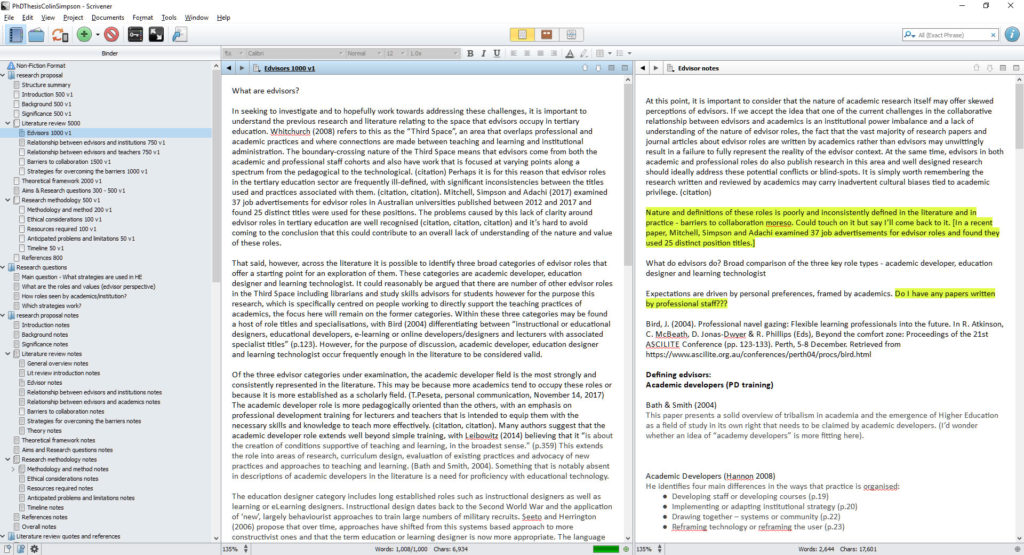Edit: Yeah I took out that story about the bitcoin scammer because it was fake. Guess it’s one of those cognitive bias things where you want something to be true enough that you drop your critical reading. It was still a good story though.
I got up early today and smashed out a quick 1000 words on what I think the literature has to say about some potential solutions to the barriers to collaboration issue. After that I managed to find a few more rich veins of literature about education/instructional designers. I’m not sure if this is good news or bad news but it does seem more and more as though the questions that I’m asking are now particularly new ones. Miles Allen did some great work in 1996 where he survey 99 instructional designers about their practices and experience. Given that most of the problems that I’m exploring still haven’t been resolved, I think it’s still ok and this state of unresolvedness (it’s probably a word) in spite of so much research raises some useful questions of it’s own. I also managed by sheer blind luck to stumble across someone’s PhD thesis about instructional designers in Higher Ed from 2012. It made me realise how pleasant double spaced text is and I’d say there are also many other useful things in there to think about.
One thing has been bugging me a little about the structure that I’ve set up for my lit review. My research questions are pretty tightly focused on understanding of the roles and value/s of edvisors but a good chunk of the literature that I’m interested in goes beyond that to explore the barriers to effective collaboration between edvisors, academics and institutional leadership. Now this is a structure that both of my supervisors have looked over and provided feedback on and neither of them seemed to feel that this was a concern but I’m not sure whether I need to rewrite my questions or reframe what I’m reading so that it addresses this more closely. I think the latter is doable, particularly if I take value (worth) to also mean ‘deserving a place within the institution’. All the same, it’s given me a little pause for thought.



